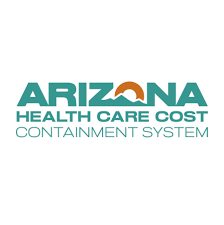Arizona’s Legislative Session in the Books
Well, the 2018 Legislative Session is in the books. All in all, it was a good year for public health at the state level. Several more good public health-related bills were signed today including:
HB 2324 Voluntary Certification for Community Health Workers
HB 2088 Public Health Guidelines in Schools
HB 2235 Dental Therapy Licensure
SB 1245 SNAP- Fruits and Vegetables
HB2371 Statewide Food Truck Licensing
I’ll be doing a free Webinar about the legislative session Thursday May 17 at noon with the UA Center for Rural Health & the UA Telemedicine Program. Visit the AZ Telemedicine Program’s Website to register.
Here’s a link to a PowerPoint that summarizes the Victories, Missed Opportunities, Disappointments, and things that were in the final budget that link to public health. It’s the ppt that I’ll be using during the webinar on Thursday.
US Farm Bill: An Opportunity to Leverage Policy to Reduce Obesity
You’ve probably heard about the “Farm Bill” at one point or another. While it’s called the Farm Bill- it’s not just about farms. It’s the bill that sets the food and agricultural budget and policy for the US. The bill impacts farming livelihood, and also determines how food is grown and which foods are grown. It was last reauthorized by Congress in 2014 and Congress is now working on a new reauthorization.
The 2014 Farm Bill (the Agricultural Act of 2014) included some changes and reforms to the Supplemental Nutrition Assistance Program (SNAP or food stamps) and the Commodity Supplemental Food Program. In Arizona, SNAP benefits help put food on the table for more than one million people each month, with more than half of the benefits going to kids and teens.
The 2014 Farm Bill did a few things that promoted healthier options by requiring SNAP retailers to provide healthy choices. The ’14 law also provided grant programs to encourage people that receive SNAP benefits to buy more fruits and vegetables, provide funding for loan programs for healthy food retailers, and create opportunities for schools to add different kinds of vegetables as part of school menus.
We’re hoping that Stakeholders like us can better leverage the Farm Bill to improve healthy eating this time around now that we have a member of our delegation on the Agriculture Committee. Arizona District 1 Congressman Tom O’Halleran is on the House committee.
Back when I was at the ADHS we worked with ASU on a report to provide information to Congress about how SNAP could be leveraged to improve healthy eating. The full report has the details but here are a few of the concepts in the evidence review:
-
Improving access to healthy food by establishing guidelines requiring SNAP vendors to carry more healthier options
-
Establishing nutrition standards for foods that qualify for purchase using SNAP benefits. Right now, SNAP benefits can be used for basically any retail food no matter how unhealthy it is (alcohol can’t be purchased with SNAP benefits).
-
Making changes to the SNAP education program to incorporate evidence based public health practices to bring about sustained changes in participant behavior.
Rather than strengthen the food quality requirements, the bill currently being debated by the House Agriculture Committee would expand the existing SNAP work requirements. Right now, SNAP requires childless adults between 18 and 49 who don’t have disabilities to work or be in work training to qualify. The draft legislation would expand the work requirement to include adults up to 59 and people who care for children older than 6. The draft bill also would set tighter time frames for recipients to find work and stiffen the penalties if they don’t.
SNAP recipients covered under the work requirement would have to document that they are working or getting job training for 20 hours a week. The first time an individual doesn’t comply with that requirement would trigger a loss of benefits for a year. Failing to comply again would result in being locked out of SNAP for three years.
The proposed changes would increase state costs by requiring states to collect monthly information from most SNAP users about their hours worked, their hours of participation in work programs, and the reasons they may not be working in a work program.
The APHA has set up a way that you can Contact your representative today and urge them to include nutrition standards for foods to qualify for purchase under SNAP and also to comment about the new proposed work/work training requirements.
Sonoran Prevention Works Scores Syringe Access Grant
Sonoran Prevention Works received a $125,000 grant from the Vitalyst Health Foundation to support advocacy and education for syringe access programs – a proven harm reduction strategy in response to the opioid crisis and rising hepatitis-C and HIV infection rates. They’ll be partnering with the University of Arizona College of Medicine Tucson and Creosote Partners to destigmatize syringe access programs and understand the comprehensive needs of people who inject drugs.
The Maricopa County Sheriff’s Office will also work with Sonoran Prevention Works to implement a needle stick prevention program and to educate law enforcement on injection drug use. These partnerships will work to support policy change that treats substance use as a public health issue.
